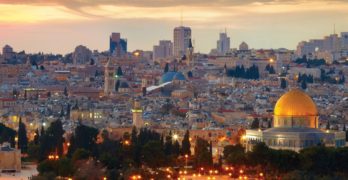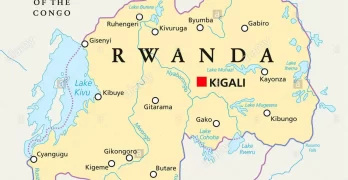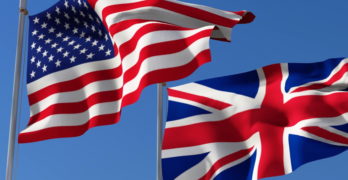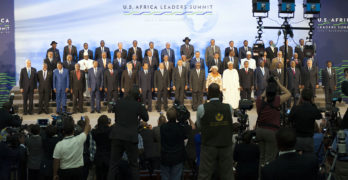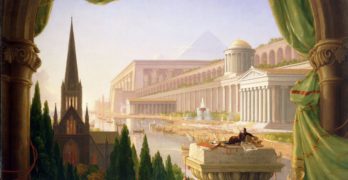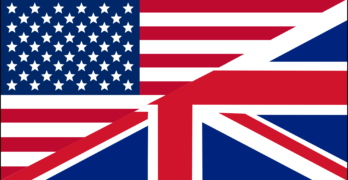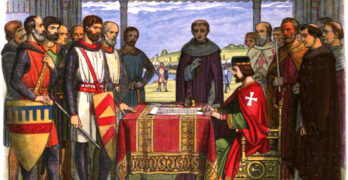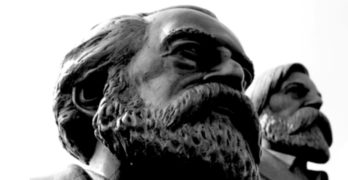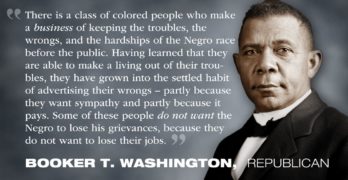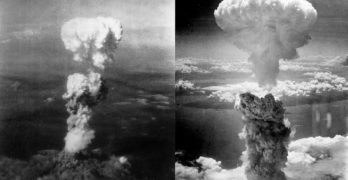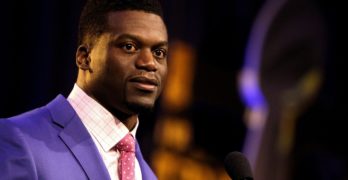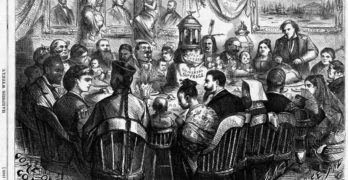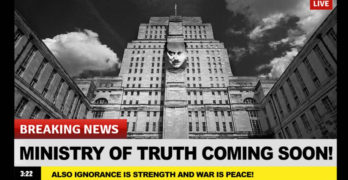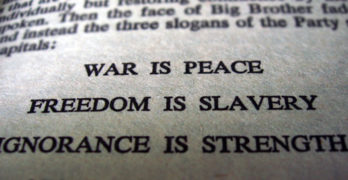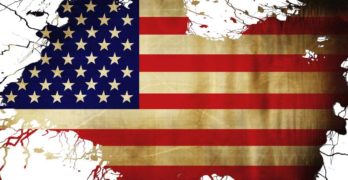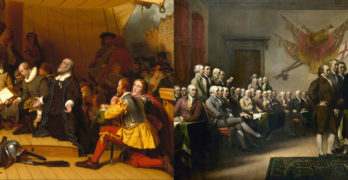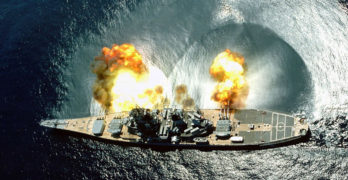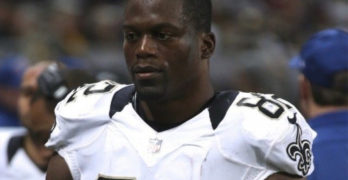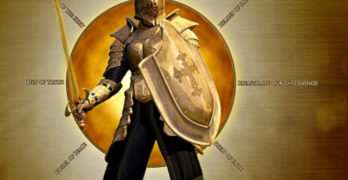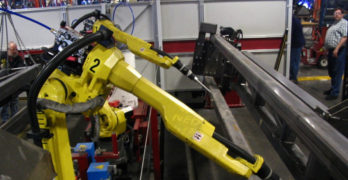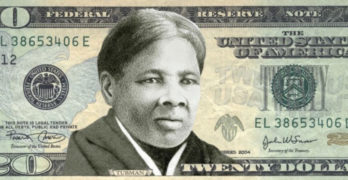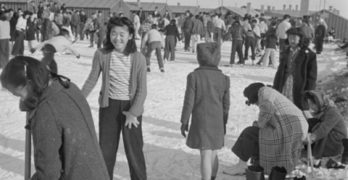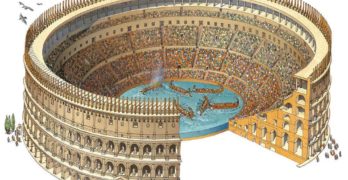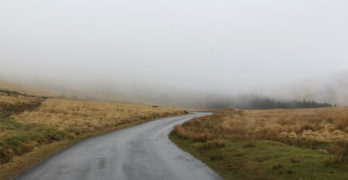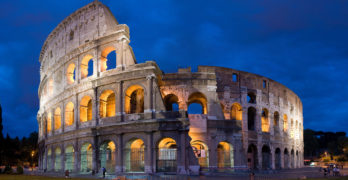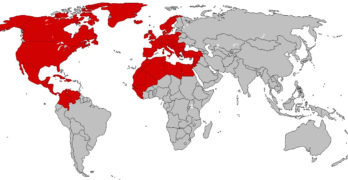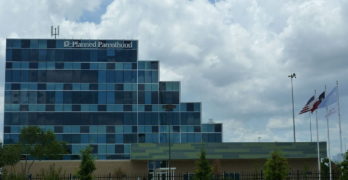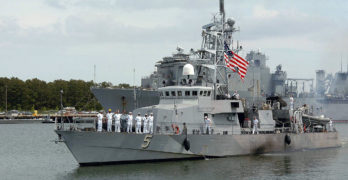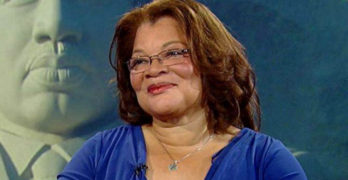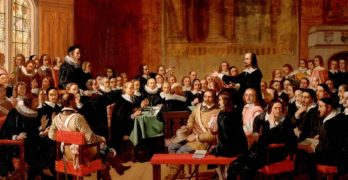 Kenya’s Birth Pangs
Kenya’s Birth Pangs
From 1957-1961, Kenya was still painfully struggling to recover from the bloody agonies of the Mau Mau movement, which had created bitter mistrust and hatred, not only between Africans and Europeans, but also among many of the various African tribes. At the same time, the country was being hastily prepared for the end of British rule and for national independence. This was eventually achieved in 1963.
In 1960, the Belgian Congo, which is to the west of Kenya, gained its independence. Without adequate preparation, the various African groups inside the Congo were unable to meet the demands of self-government, and were plunged into a protracted series of bloody internal wars. Many of the European residents of Congo fled eastward into Kenya, bringing with them gruesome pictures of the strife and chaos they had left behind them.
Against this background, the forecasts of the political experts for the future of Kenya were dark indeed. It was generally predicted that Kenya would follow the unhappy course of the Congo, but with problems made even more serious by the internal antagonisms that were the legacy of Mau Mau.
In August 1960, Derek Prince was one of a number of missionaries ministering at a week-long convention for African young people held in western Kenya. There were about two hundred young Africans in attendance, most whom were either teachers or students. A considerable number of these were either students or former students from Teacher Training College of which Derek was the principal.
The convention ended on a Sunday. In the final service that evening, the congregation witnessed a fulfillment of Joel’s prophecy, as quoted by Peter:
And it shall come to pass in the last days, saith God, I will pour out my Spirit upon all flesh: and you sons and daughters shall prophesy, and you young men shall see visions, and your old men shall dream dreams (Acts 2:17 KJV).
A missionary colleague from Canada brought the closing address, which was translated into Swahili by a young man named Wilson Mamboleo, who had recently graduated from the Teacher Training College.
The first two hours of the service followed a normal pattern, but after the close of the missionary’s address, the Holy Spirit moved with sovereign power and lifted the meeting onto a supernatural plane. For the next two hours, almost the whole group of more than two hundred people continued in spontaneous worship and prayer without any visible human leadership.
Tell them to Pray for Kenya
At this certain point, the conviction came to Derek Prince that, as a group, they had touched God, and that His power was at their disposal. God spoke to his spirit, and said, “Do not let them make the same mistake that Pentecostals have so often made in the past, by squandering My power in spiritual self-indulgence. Tell them to pray for the future of Kenya.”
Derek began to make his way to the platform, intending to deliver to the whole group the message that he felt God had given him. On the way, he passed Lydia, his wife who was sitting beside the aisle. She raised her hand and stopped him.
“What do you want?” Derek asked her.
“Tell them to pray for Kenya,” she said
“That’s just what I’m going up to the platform for,”
Derek realized that God had spoken to his wife at the same time that He had spoken to him, and he accepted this confirmation of His direction.
Reaching to the platform, he called the whole group to be silent and presented God’s challenge to them:
You are the future leaders of your people,” he told them, “both in the field of education and also in the field of religion.
The Bible places upon you, as Christians, the responsibility to pray for your country and its government. Your country is now facing the most critical period in its history. Let us unite together in praying for the future of Kenya.
Wilson Mamboleo was with Derek on the platform, translating his words into Swahili. When the time came to pray, he knelt down beside Derek. As Derek led in prayer, almost every person present joined him in praying out loud.
The combined volume of voices rising in prayer reminded Derek of the passage in Revelation 19:6: “And I heard as it were the voice of a great multitude and as the voice of many waters, and as the voice of mighty thundering”
The sound of prayer swelled to a crescendo, then suddenly ceased. It was as if some invisible conductor had brought down his baton.
After a few moments of silence, Wilson stood up and spoke to the congregation. “I want to tell you what the Lord showed me while we were praying,” he said. Derek realized that God had given him a vision as he knelt beside him in prayer. Wilson then related the vision he had seen, first in English and then in Swahili.
I saw a red horse approaching Kenya from the east. It was very fierce, and there was a very black man riding on it. Behind it were several other horses, also red and fierce. While we were praying, I saw all the horses turn around and move away toward the north…. I asked God to tell me the meaning of what I had seen, and this is what He told me: Only the supernatural power of the prayer of my people can turn away the troubles that are coming upon Kenya!
For many days after that, Derek continued to meditate on what Wilson had told them. He realized that Wilson’s vision was in some ways similar to one recorded in Zechariah 1:7-11.
Derek then asked Wilson whether he was familiar with this passage of Zechariah, and he replied that he was not. He gradually concluded that by this vision, God had granted them an assurance that He had heard their prayers for Kenya, and that He would intervene in some definite way on behalf of the country. Subsequent events in Kenya’s history have confirmed that this was so.
During this period of British rule, Kenya was one of three states that made up British East Africa. The other two states were Uganda to the west and Tanganyika to the south (Tanganyika was later renamed Tanzania). Kenya eventually achieved her independence on December 12, 1963. The other two states had already achieved independence somewhat earlier.
The following are some of the events on how the Lord intervened in the history of Kenya:
- Kenya eventually achieved Independence, and immediately after Independence was declared, a national government was duly elected in Kenya, with Jomo Kenyatta as the nation’s first president.
- In January 1964, the vision that Wilson saw was further fulfilled by two bloody revolutions one in Zanzibar, off Kenya’s east coast, that resulted in an overthrow of the Sultan of Zanzibar and another movement gripped the national army of Tanzania. The aim was to overthrow the newly elected government in Kenya and replace it with a military dictatorship under communist control.
- During this critical point, Kenya’s new president, Jomo Kenyatta, acted with wisdom and firmness. He enlisted the help of the British army, and suppressed the revolutionary movement in the Kenyan army, and restored law and order throughout the country. Therefore, the authority of Kenya’s duly-elected government was preserved, and the communist attempt at a military take-over was completely foiled.
- In Wilson’s vision, the red horses that turned away from Kenya moved towards the north. Northward along the African coast from Kenya lies Somalia. The kind of communist military coup that failed in Kenya was successful in Somalia. Someone later described Somalia as “a communist military camp” (which I might add is still a communist failed state up to this very day).
- The other countries bordering on Kenya had likewise experienced serious problems. To the south, in Tanzania strong communist influence has brought about various limitations of political problems. To the south, in Tanzania, strong communist influence has brought about various limitations of political freedom. To the west, in Uganda, there had been a history of unstable governments and internal tribal clashes, with a very determined effort by the Moslems to gain control of the country and to make Islam the official religion of the nation. Yet in the midst of all this, Kenya succeeded in combining order and progress with a high degree of political and religious liberty to a remarkable extent.
- The attitude of Kenya’s government toward Christianity since that time had been consistently friendly and cooperative. Although President Kenyatta did not profess to be a Christian, he officially invited the various Christian bodies in Kenya to teach the message of Christianity in every government school in the country. In many ways, Kenya had become a strategically located center from which trained national Christians were able to move out with the gospel message to all the surrounding countries.
The local media through an edition of the English London Times gave a special sixteen-page supplement that dealt exclusively with Kenya, the theme of this supplement was that Kenya had proved to be one of the stable and successful of nearly fifty nations that had emerged on the continent of Africa since the end of World War II.
Derek Prince says,
As I turned each page of the supplement, I seemed to hear the inaudible voice of God within my spirit, saying, “This is what I can do when Christians pray with faith for the government of their nation.
Derek Prince wrote to Wilson Mamboleo in Nairobi outlining his recollection of the vision God had given him in 1960, and he asked him to indicate any ways in which he could make his account more accurate.
Derek also asked him if he had any comments to make on the then present situation in Kenya and these are some extracts from his reply as recorded by Derek Prince on 30 June 1972:
At this time Kenya is leading a peaceful life. Economic development is steadily growing. Foreign investment is in a healthy structure. Business among the African people is booming in every town in the country. The success which is being achieved in Kenya is because of the stability of the present government led by His Excellency the President, “Mzee” Jomo Kenyatta.
God chose this man to lead our nation at such a time as this, and I, as well as many other faithful Christians in the country, do pray for him, that God may grant him wisdom. Many people in the country do not have an answer who would be a successor to President Kenyatta, when his days are over. In the eyes of men, there is no man of his calibre who will have such a commanding leadership, accepted by all his countrymen, as Kenyatta. However,
I do believe, and this is what I tell those I meet, that “God will provide” a man—but only as a result of persistent prayer of the saints.
We thank God that Kenya enjoys more freedom to worship God in the way a person is led, than the other neighbouring states. In Tanzania, religion—and especially Christianity is being suppressed. Open-air evangelistic meetings are not are not allowed unless one has a valid permit from the authorities….In Uganda, the military government which was led by General Amin, a Moslem was urging all religious bodies to become ecumenical. At one time he made a mixture of worship–Moslem prayers were conducted in a Christian church, and the General himself attended the prayers.
The military government of Somalia is a communist type of government. Somalia had communist ties with the communist countries of the East—the Soviet Union and Red China. Large amounts of financial and material aids are given to Somalia, just as Tanzania receives its aid from China (including military training and supplies of Chinese MIG fighters)
Over the past years, the history of Kenya and the surrounding nations has demonstrated the exact outworking of the vision that God gave to Wilson in 1960. The intervention of God on behalf of Kenya came through a group of Christians who united together to pray, in accordance with Scripture, for the government and destiny of their nation.
The words of Wilson’s vision confirm what all African and other nations need: “Only the supernatural power of the prayer of My people can turn away the troubles that are coming upon Kenya.” Is there not a good reason to believe that these words apply just as much to your country and to mine?
It is the gospel of Jesus Christ combined with prayer, fasting, intercession, and discipleship that can change the destiny of any nation. For instance, the political and social crisis going on in Uganda and Kenya, and elsewhere in the world today cannot be fought using mere human and intellectual effort. It will take the supernatural power of divine grace operating in our souls by the Holy Spirit.
When the Church is thus prostrated in the dust before God, and is in the depth of agony in prayer and fasting, regarding the political, social, or spiritual situation of a nation, deliverance comes as we shall finally examine in Part 3.


